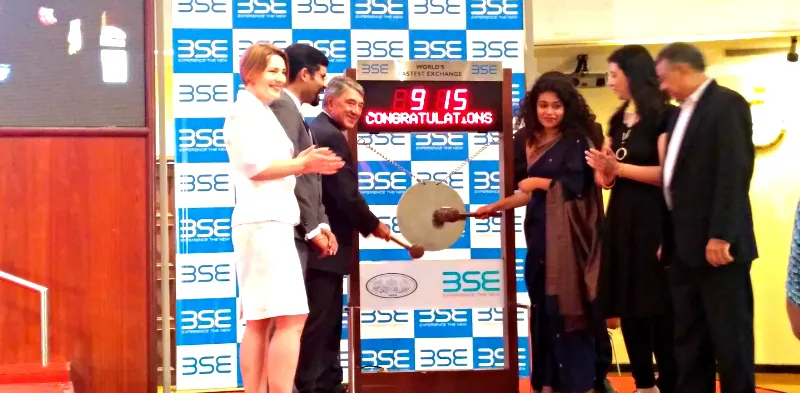43 bells rang today around the world for gender equality, here's all you need to know
The auditorium at the plush 18-floor Bombay Stock Exchange (BSE) was unnaturally abuzz about a mundane morning ritual that they have been performing for nearly one hundred and thirty two years - for today, they stood on the cusp of change, and knew that once the gong was struck, one would pledge to fight for the cause of ushering in equality in business, educational, and domestic settings. As the leading ladies occupied the dais, the audience at the forum was also set up to welcome the women to take the stage.
Close to 43 leading stock exchanges across the world, rather than competing, will have united in solidarity today. On the occasion of International Women's Day, they will dedicate their opening and closing bells to gender equality. In India, the Bombay Stock Exchange (BSE) as well as the National Stock Exchange (NSE) flagged off this initiative by inviting industry veterans to strike the gong of the 9:15 bell, signalling the opening of the markets, and the formation of an alliance to up the ante to close the gender gap in India.

A brainchild of the Sustainable Stock Exchange (SSE), a peer-to-peer learning platform that explores synergies between exchanges, investors, regulators, and companies, it aims to create a sustainable economic ecosystem. The campaign propagates through global stock exchanges and their morning bells, as it is symbolic of striking economies at their powerhouses, their nerve centres, and endeavours to alert these stock exchanges of the influence, and hence, responsibility they hold to right the wrongs prevalent today.
"While this is an important day in our calendars, we need to worry about why there is still a need to celebrate this occasion specially," says Ashishkumar Chauhan, MD and CEO of BSE, which has been part of all three editions of this annual event, since 2015.
According to a report released by the SSE on the phenomenon, today, while both the NSE and BSE have gender-specific listing mandates, the numbers are far from ideal. Only 3 percent of the IPO issuers on the NSE have female CEOs, and on an average, women constitute 25 percent of the board in the NSE's top 200 and 30 percent of their top 100. Meanwhile, only 13.5 percent of the Nifty Fifty's board of directors are women.
As far as the data on the exchanges themselves is concerned, neither the BSE nor the NSE has a woman as their CEO, and while women make up 20 percent and 30 percent on their boards respectively, their workforces are made up of 24 percent and 34 percent women respectively.
"Today, in the smaller towns, women don't find employment easily. While there is diverse economic activity in cities, and villages have heritage businesses, women do not get opportunities in smaller towns. A step towards positive action would be if an institution was to employ more women, to present them with awards, grants, and recognition," says Prem Narayan, President, Indian Merchant Chambers.
He also adds that there is a strong business case in accounting for all the contributions women make in the labour scenario. "Women do thrice the work that men do - cleaning, education, domestic work, and professional work - without being compensated for most of it. Our GDP will increase tenfold, to at least $30 trillion, if we account for all their contributions. I wish we prove the WEF wrong someday," he concludes.







